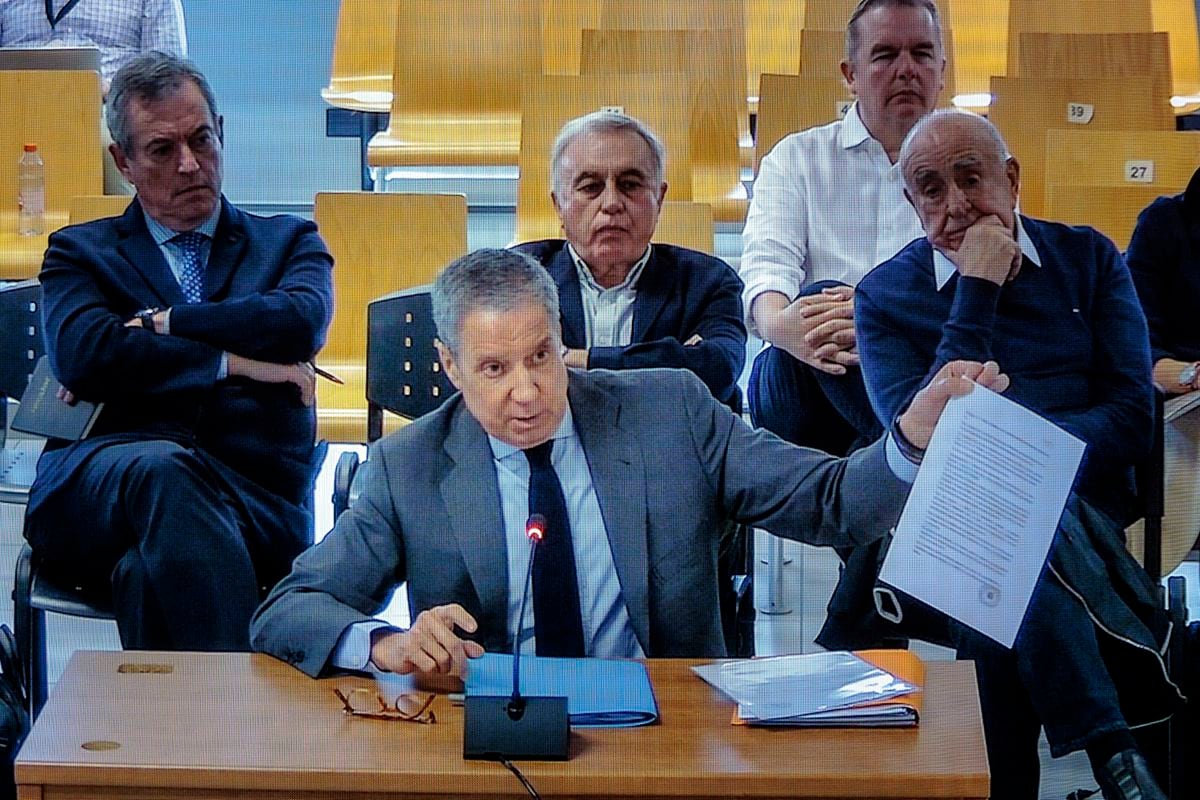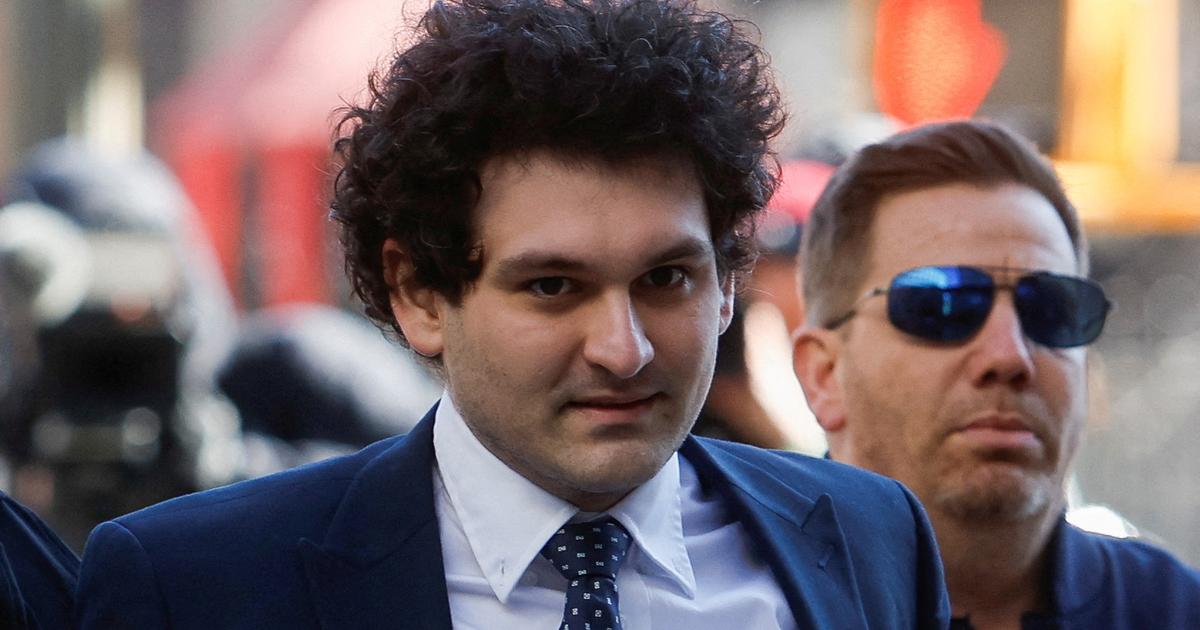From left to right: Alfonso Grau, Rafael Rubio and José María Corbín.Mónica Torres
Public officials and officials of the Valencia City Council received at least seven million euros in illegal commissions in cash and in gifts in exchange for urban favors between 1999 and 2013, according to the summary of
the Azud case
of corruption, whose secret has just been revealed.
In those years, the consistory of the third largest city in Spain was chaired by the popular Rita Barberá.
The network, designed by businessman Jaime Febrer, made the payments of these commissions through four channels, according to an order from the investigating judge: in most cases, the commissions were paid in cash;
in others, fictitious contracts were drawn up and signed that made it possible to channel the payments of those commissions.
On some occasions, real estate sales were recorded for a price lower than that actually paid, "which directly benefited public officials and officials."
The last formula for the payment of favors were gifts "of all kinds" that, according to the judge, "could not be considered as normal attention within social norms."
These gifts included bottles of wine (up to 240 euros), pens, luxury suitcases, watches, briefcases, hams or pendants.
The main beneficiaries of the alleged bribes were the then deputy mayor of the Valencia City Council, Alfonso Grau, and José María Corbín, married to a sister of Rita Barberá, who also served as her chief of staff.
The plot also includes the spokesman for the municipal socialist group, Rafael Rubio, who was part of the board of directors of the municipal public entity Aumsa, and the lawyer José Luis Vera, "who developed his political and family influences" to achieve the objectives of the February businessman.
The investigation began with a complaint from the Tax Agency and led to the finding that Rita Barberá's brother-in-law's company "owed almost 80% of its income from payments made consisting of illicit commissions."
These payments were disbursed, according to the judge, "as a result of various awards or decisions of the Valencia City Council or one of its public entities."
The biggest beneficiary of the bribes was, according to the summary, Alfonso Grau, who allegedly received two million euros from the Azud plot.
The former deputy mayor was already sentenced in June 2019 to four years in prison for bribery and money laundering for accepting luxury watches as a gift from a businessman who was a City Council contractor.
Grau, according to the investigation, received an important part of the bribe in cash and another through a family business that bought real estate for a much lower value than the real one, since the seller was Febrer himself.
The investigations have revealed that Grau deposited part of the cash in his accounts through recurring deposits of less than 3,000 euros (the technique called
smurfing
) to try to prevent the bank's anti-money laundering alarms from going off.
One of the operations in which he participated was the purchase, by the Valencia City Council, of two houses that Febrer had acquired three months earlier.
The payment of the same was not made in cash, but with an exchange of a lot.
Compared to the 322 square meters that the buildings measured, the plot had an area of 2,819 square meters, and compared to the 243,650 euros that the businessman paid for the houses, he received a plot valued at about 390,000.
Regarding Barberá's brother-in-law, the judge maintains that he obtained 602,156 euros for “fictitious billings” and cash bribes.
The Febrer companies made these payments, "which came from commissions of an illicit nature", but they were covered with a totally fictitious contractual framework to give them the appearance of legality.
Without obstacles of the PSOE
The socialist Rafael Rubio, "for services rendered, had an unjustified increase in assets of 193,000 euros," says the judge.
Although, the order indicates that "the amounts in cash received were higher", since "there is evidence" that one of the plots concocted by the Axis Group (of the businessman Febrer) paid him a commission in cash of not less than 300,000 euros .
The participation of the socialist focused on not putting "any obstacle" and favoring the urban operations in which Febrer was interested, according to the magistrate.
Rubio allegedly also made repeated cash deposits of less than 2,000 euros to "evade the administrative and financial controls" established in the anti-money laundering regulations.
The judge also outlines the participation of the lawyer José Luis Vera, to whom she assigns a role of achiever.
Thus, she points out that he received 1.3 million euros from Febrer's companies "under alleged business relationships, contracts and fictitious billing for non-existent services."
His mission was "to enable and materialize the types of business that the Axis group undertook and not to provide legal advice of any kind," the judge concludes in her resolution.
"This activity was carried out by the person under investigation in those public administrations in front of which there were positions linked to the Spanish Socialist Workers' Party (PSOE), using their important links and influences within that party for this purpose," he adds, since Vera has been historically linked to the Valencian socialists.
Exclusive content for subscribers
read without limits
subscribe
I'm already a subscriber




/cloudfront-eu-central-1.images.arcpublishing.com/prisa/IW27UXZY7BBKRCHGJ2GLQGLCE4.jpg)
/cloudfront-eu-central-1.images.arcpublishing.com/prisa/ZKHKTPX5JH7NQZ4LTZWJF7CGPQ.jpg)






/cloudfront-eu-central-1.images.arcpublishing.com/prisa/KMEYMJKESBAZBE4MRBAM4TGHIQ.jpg)


